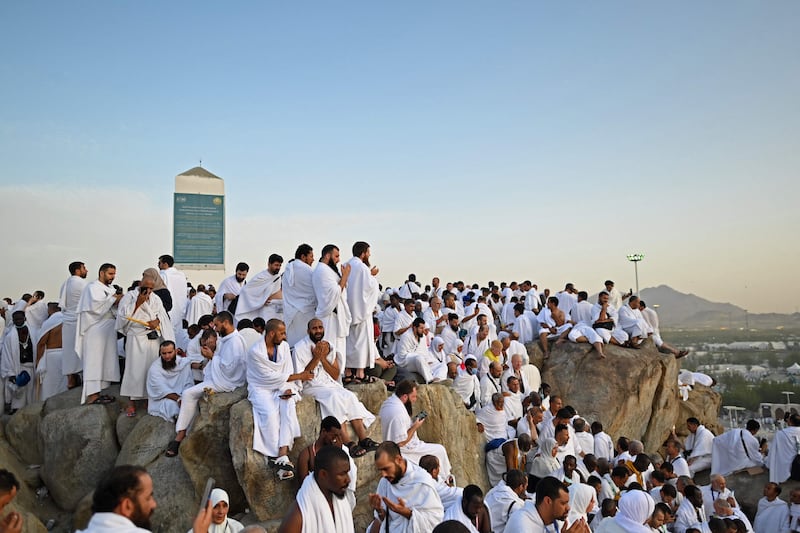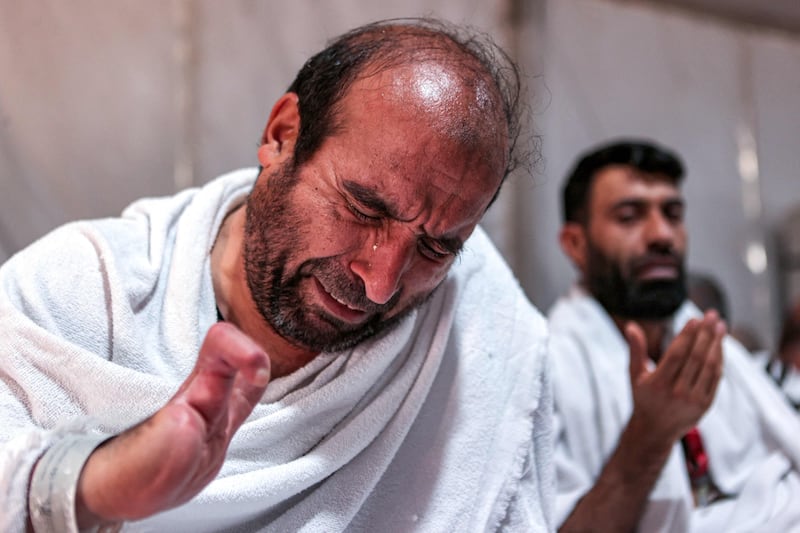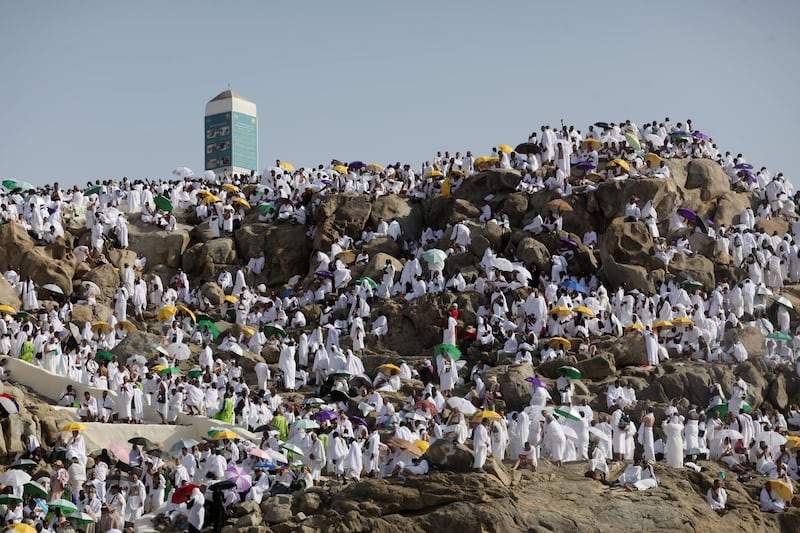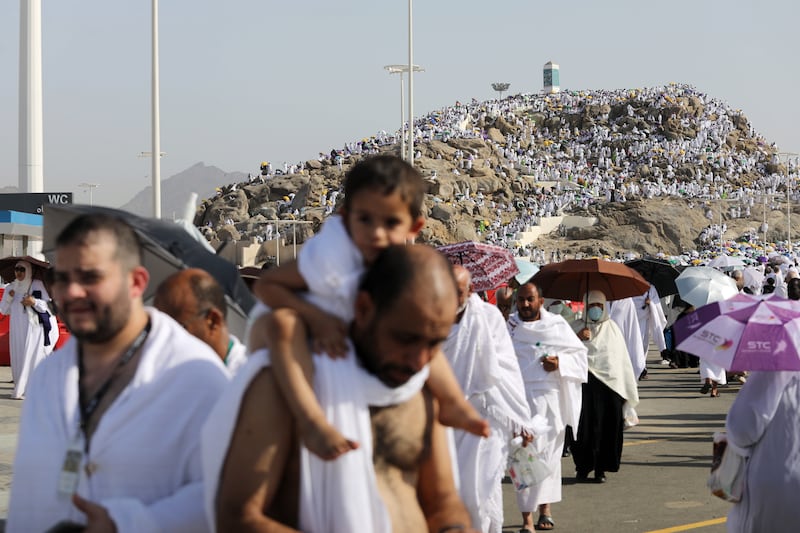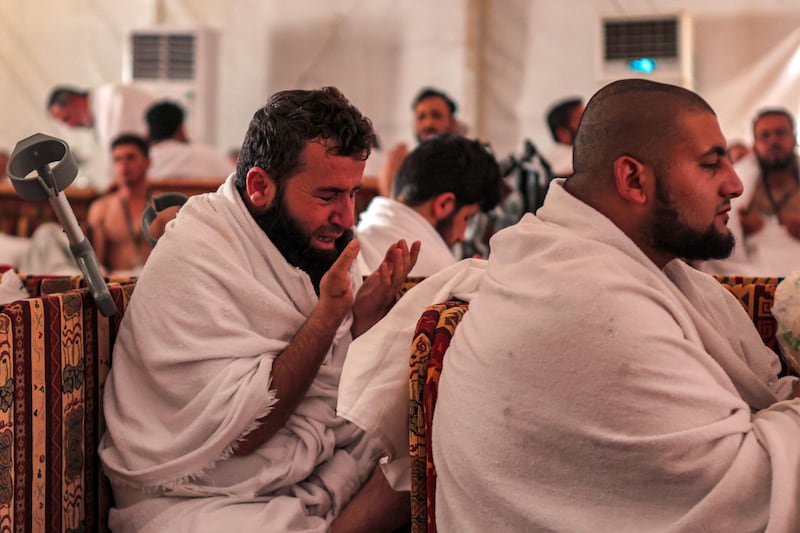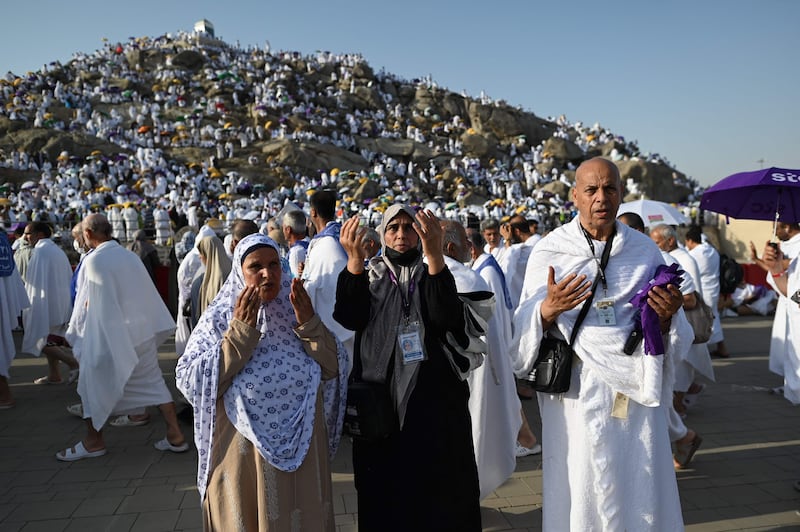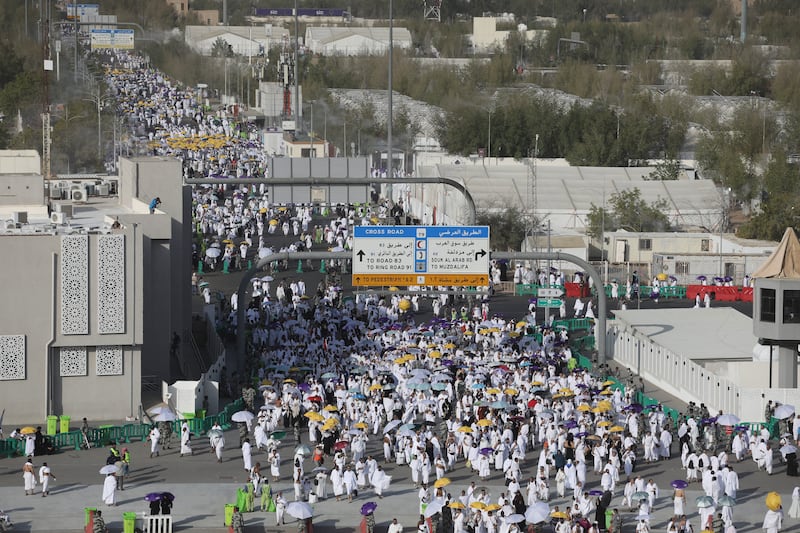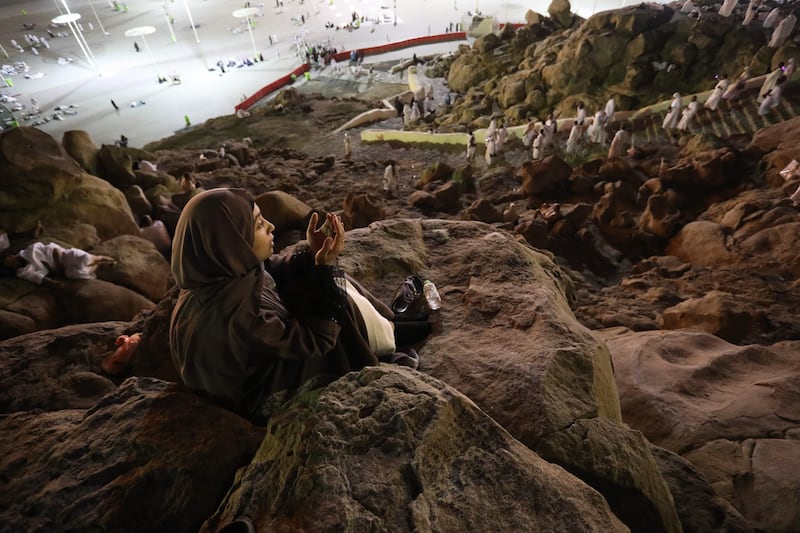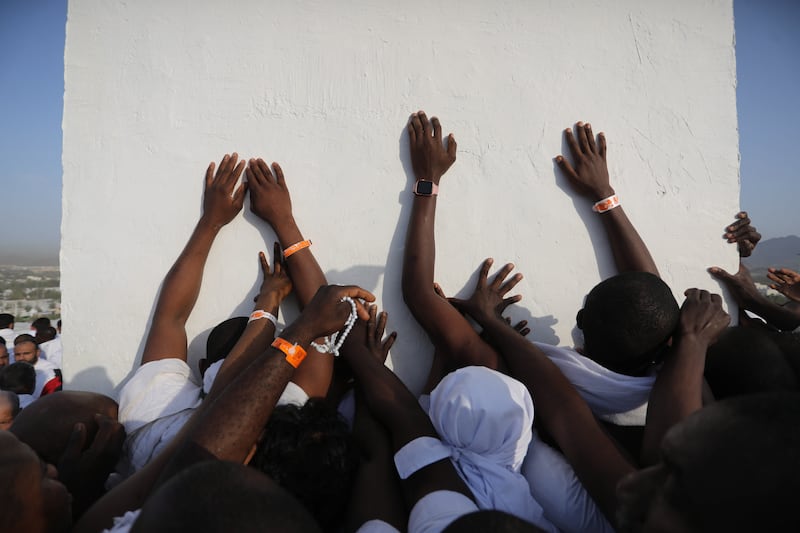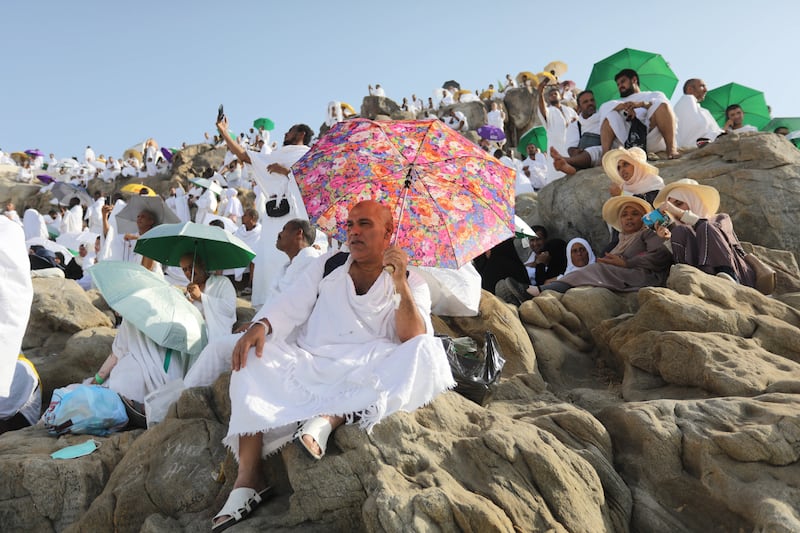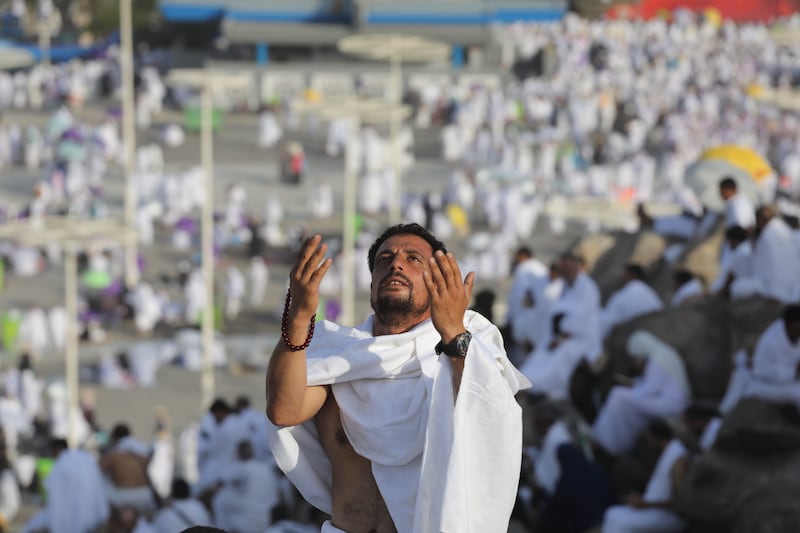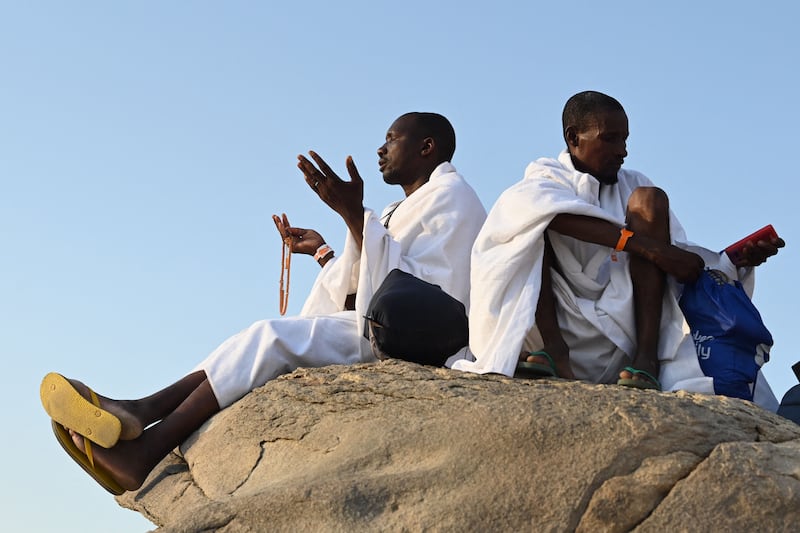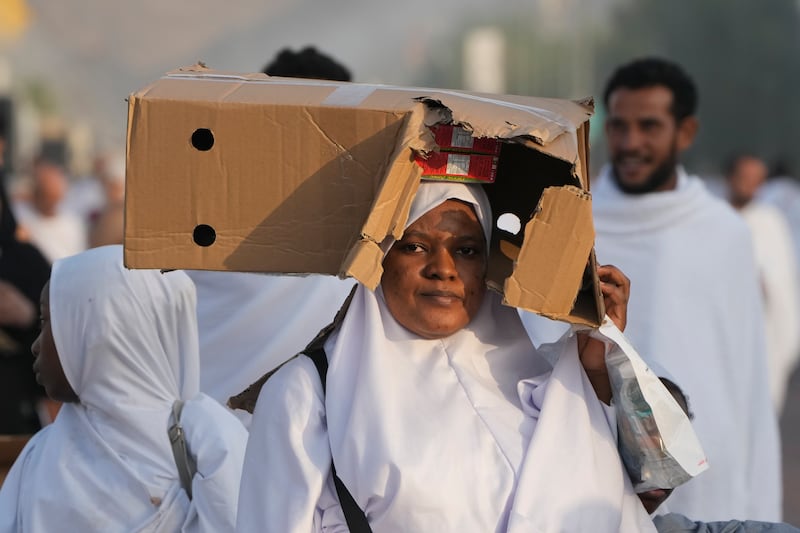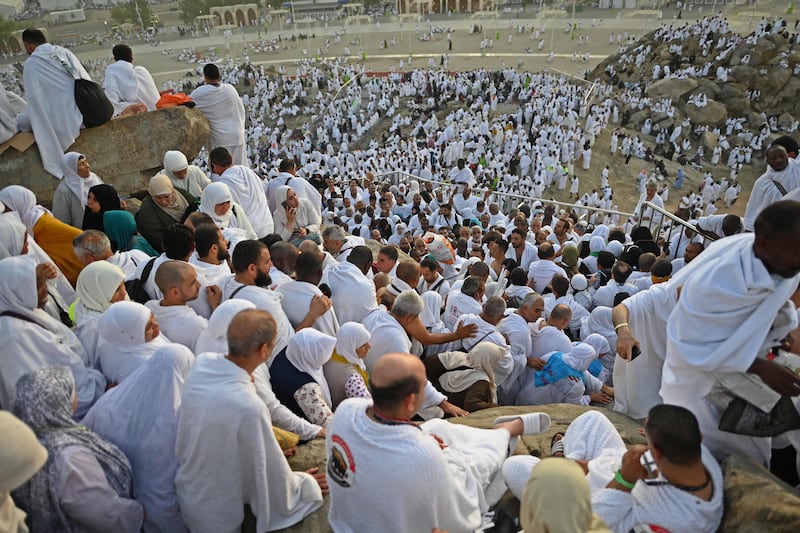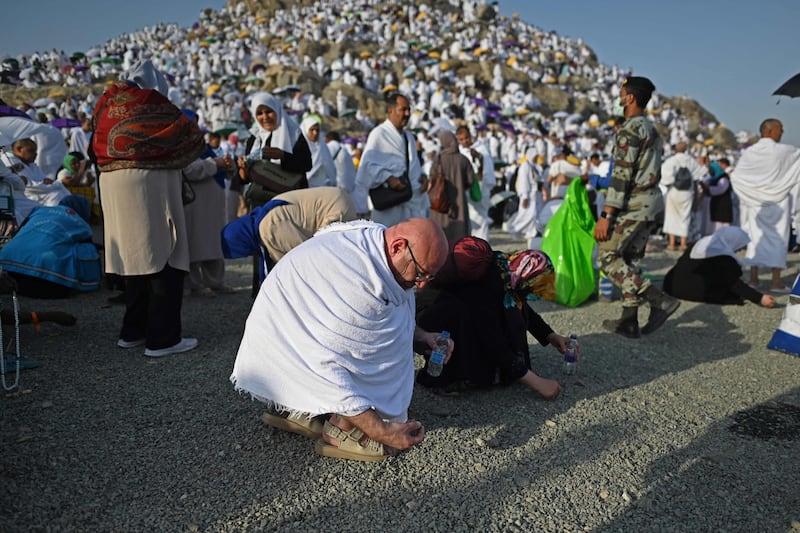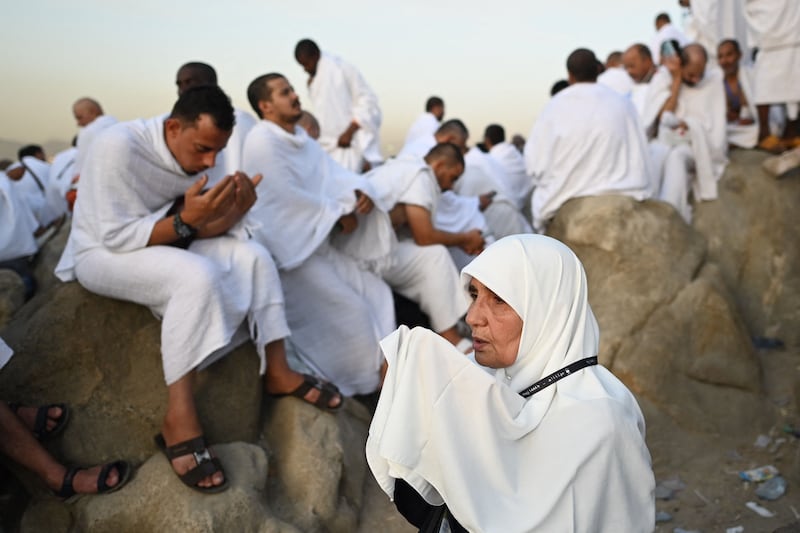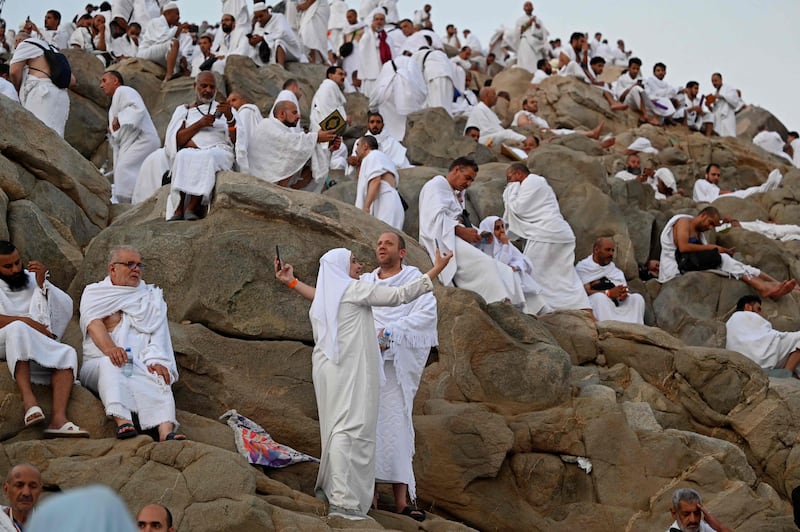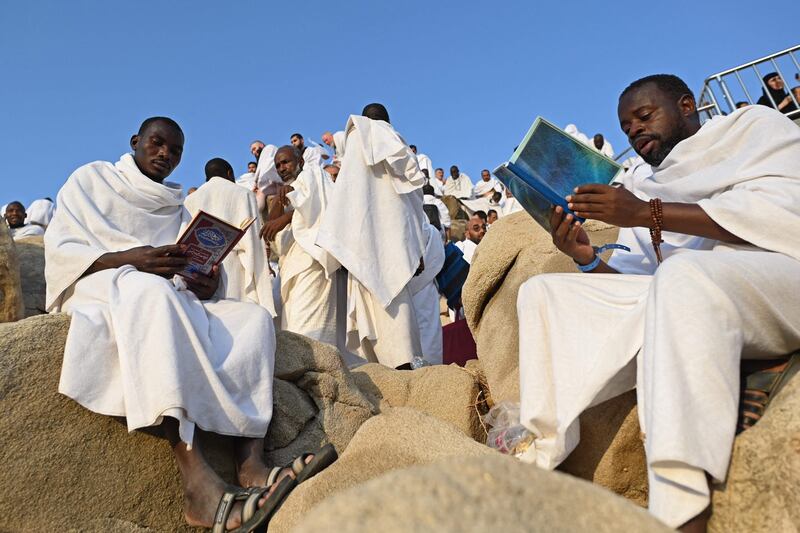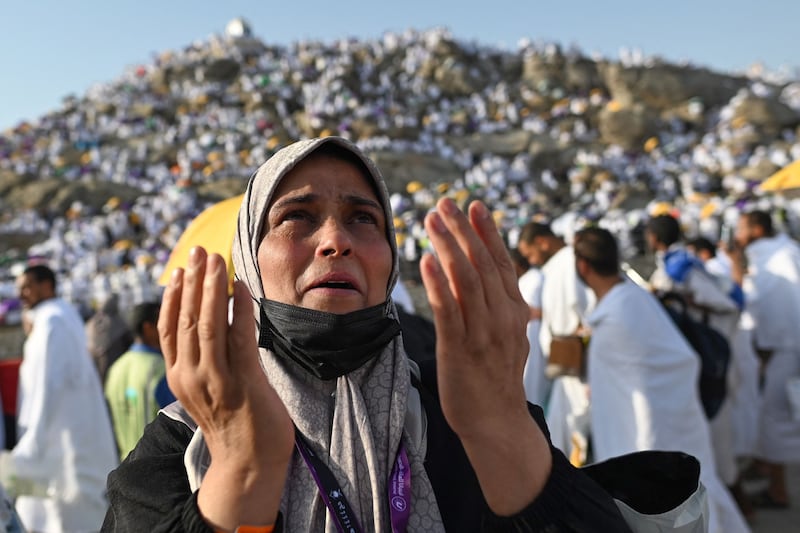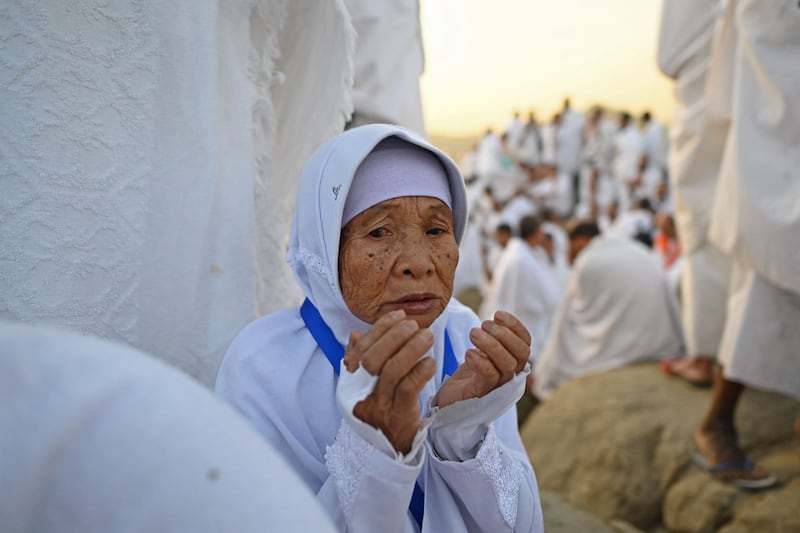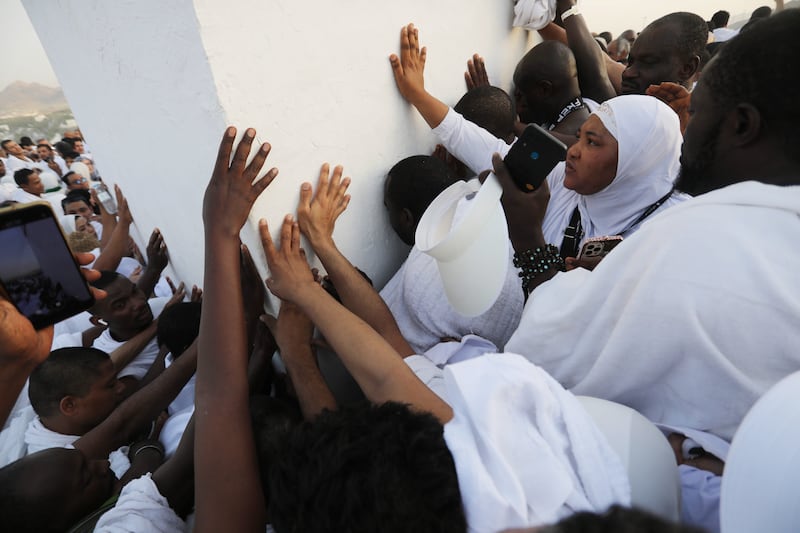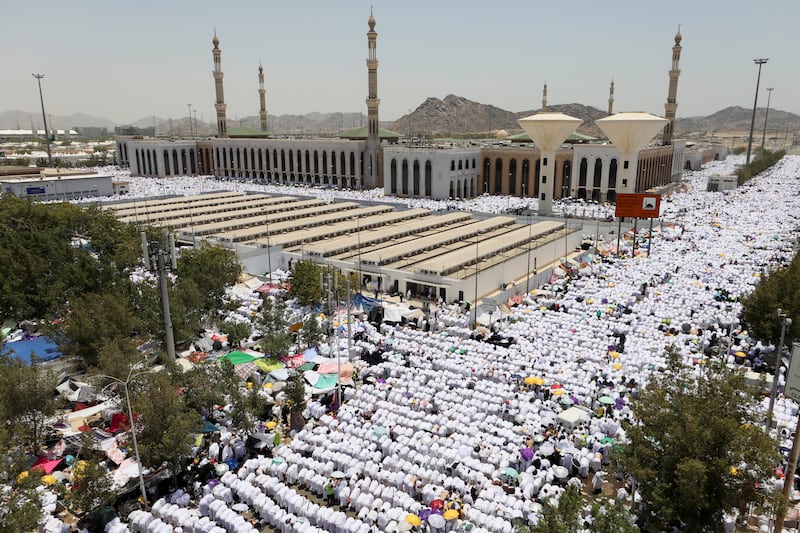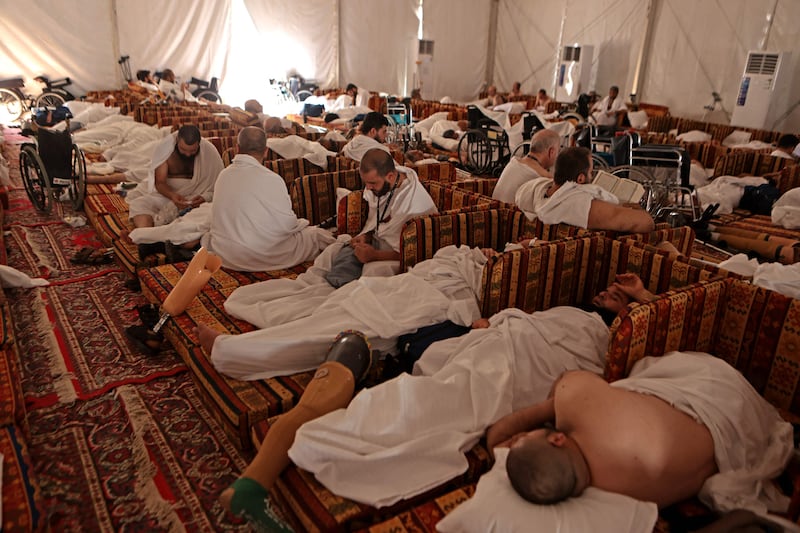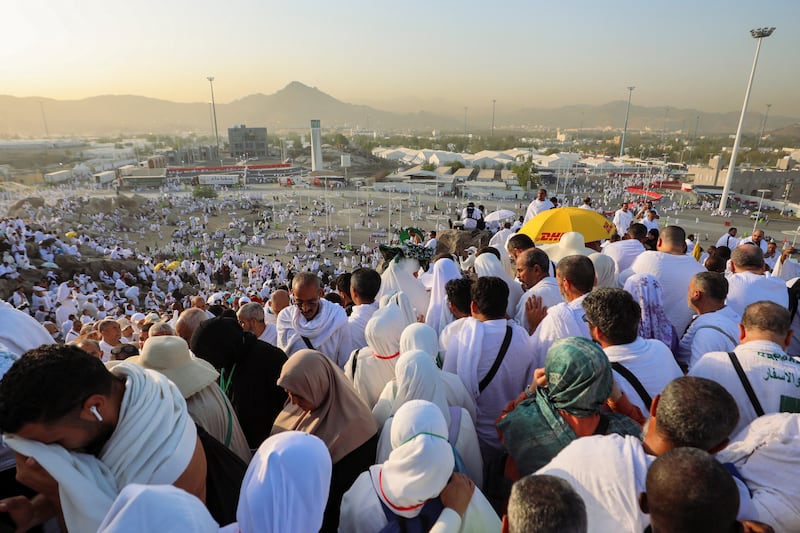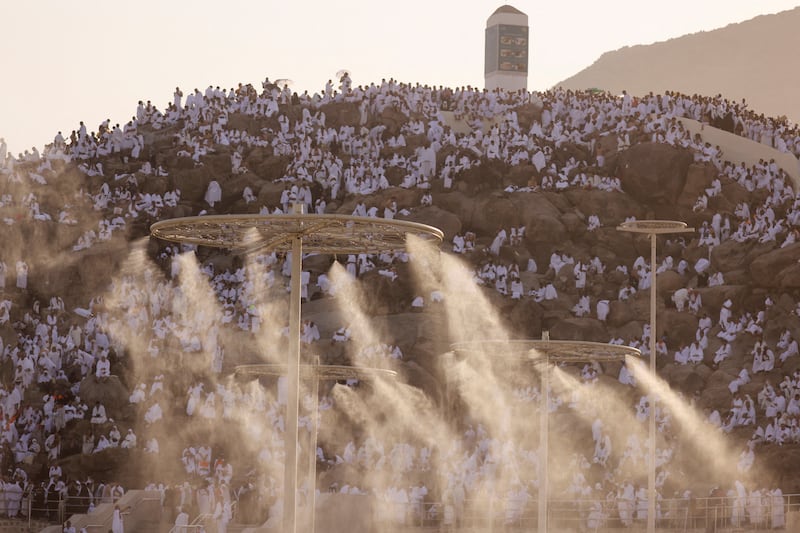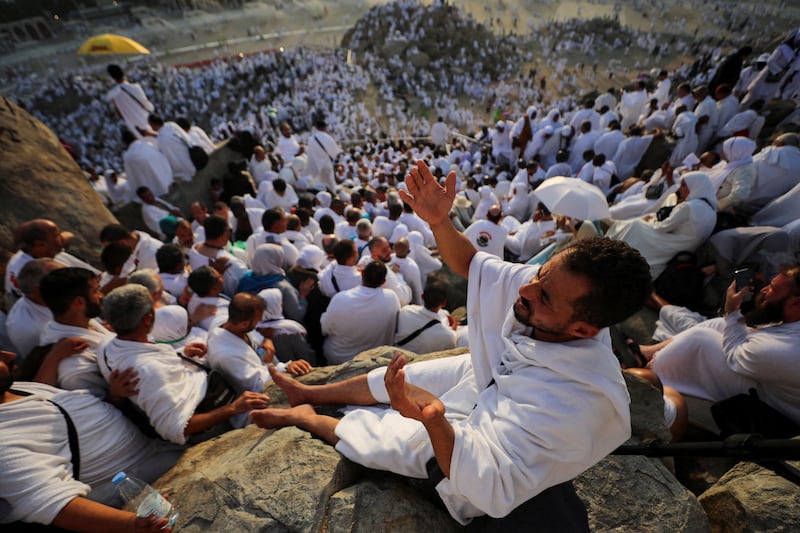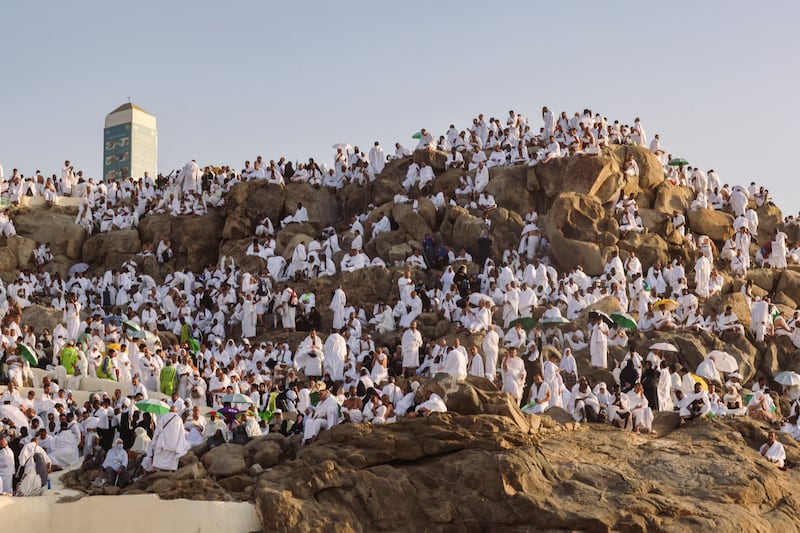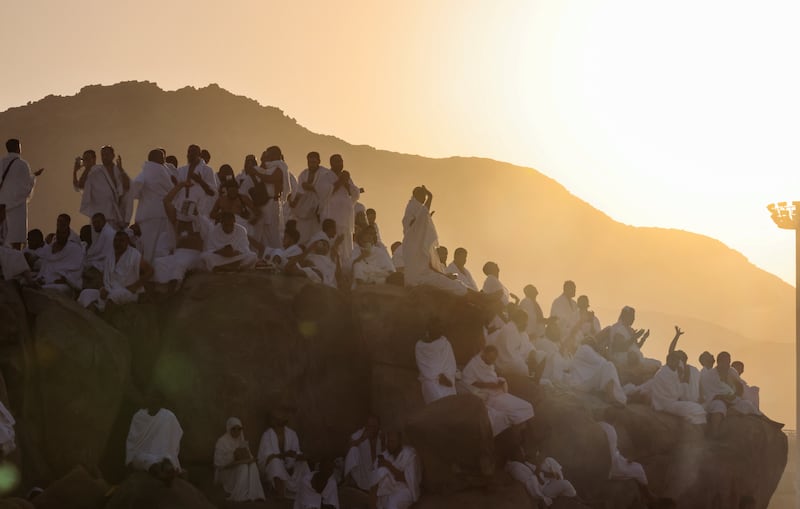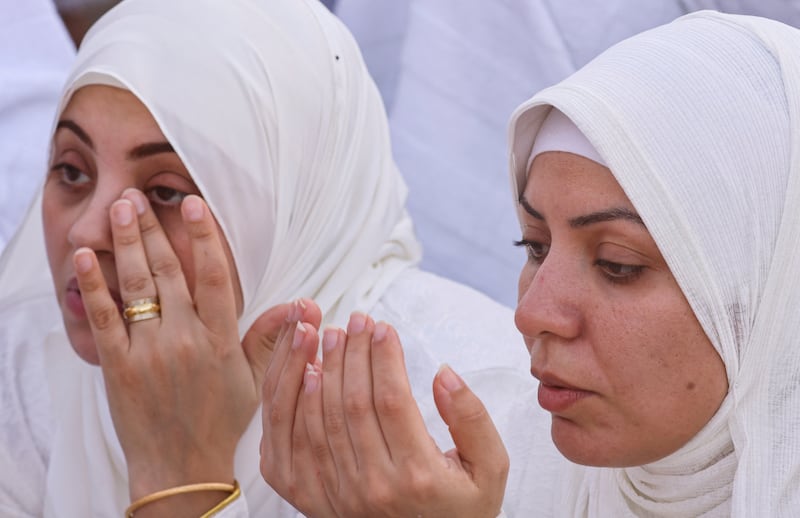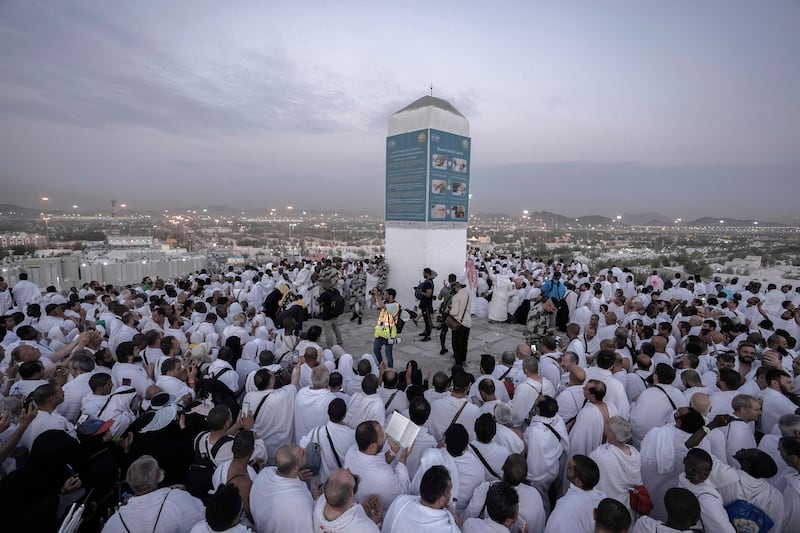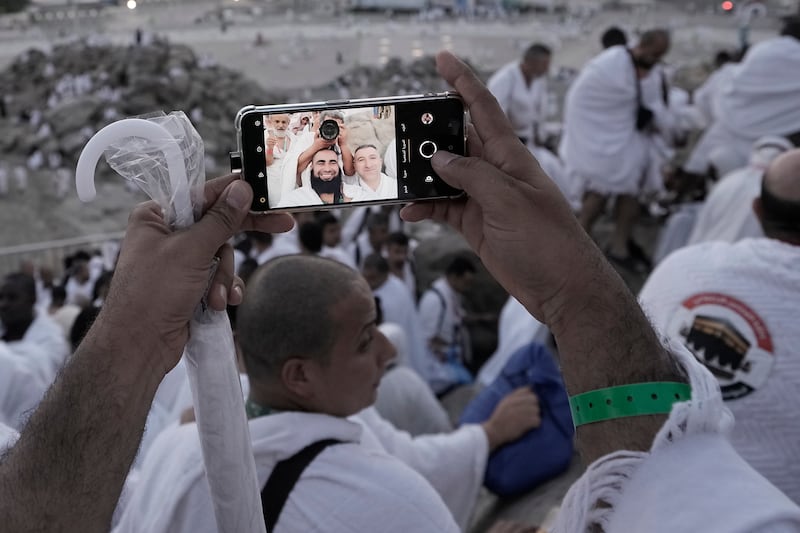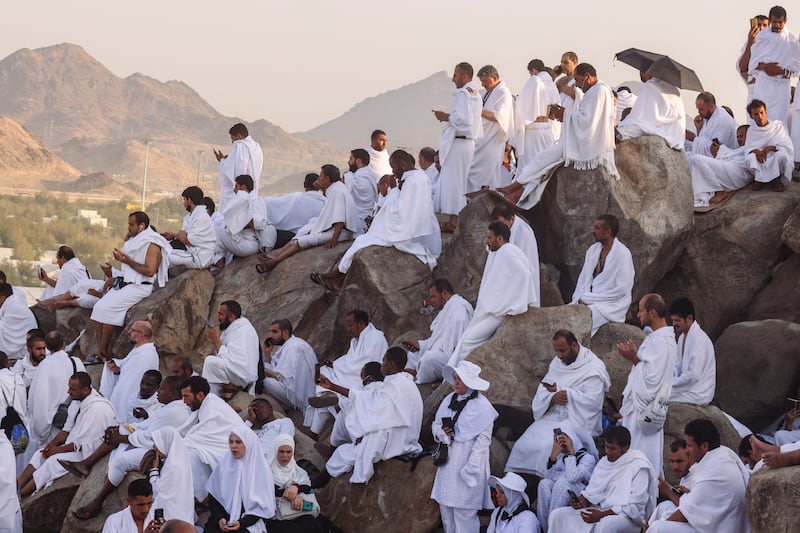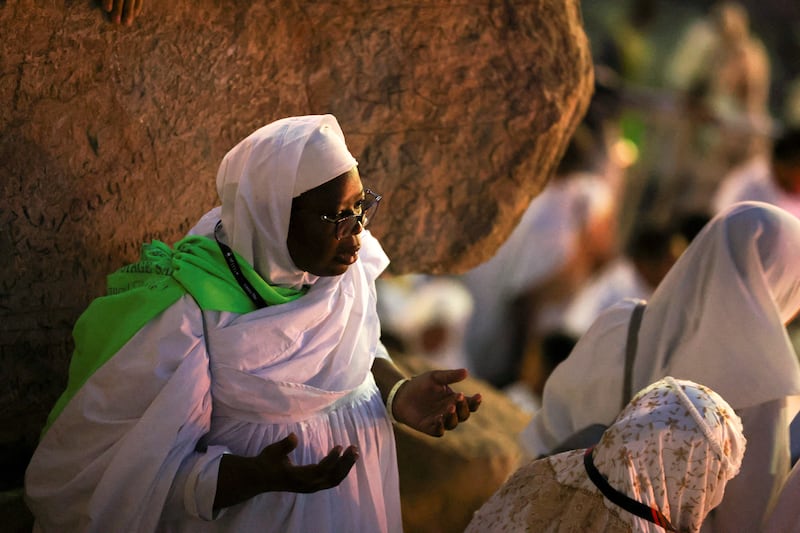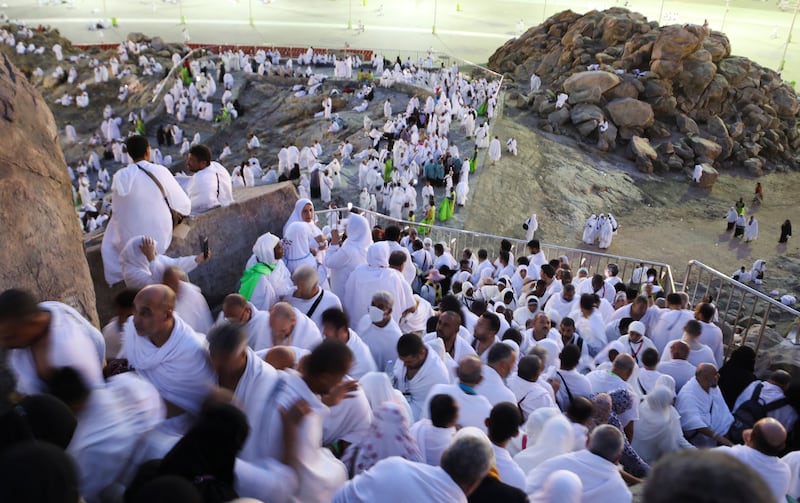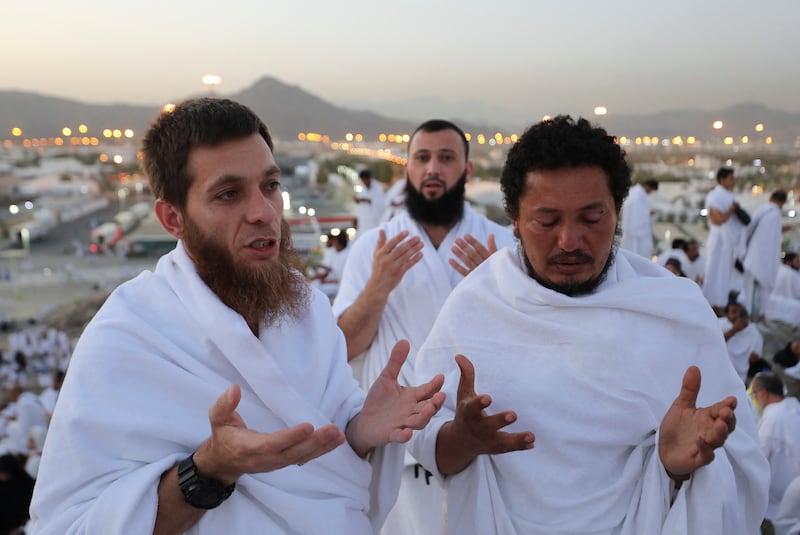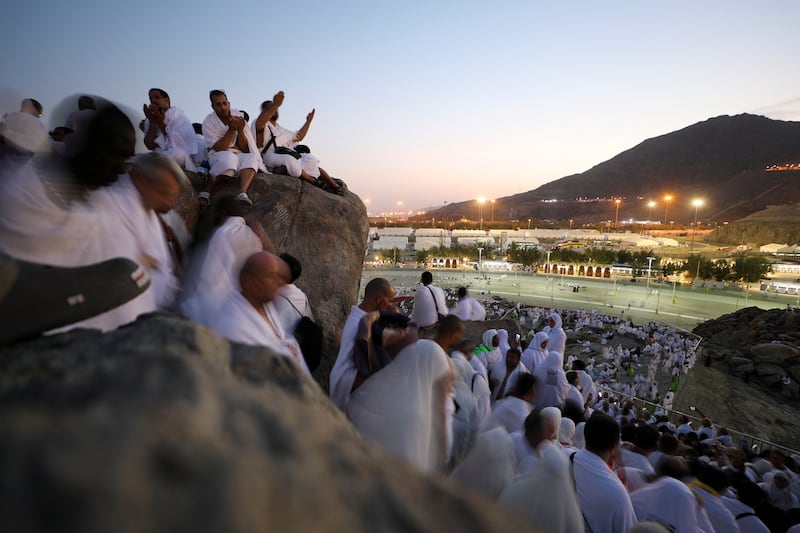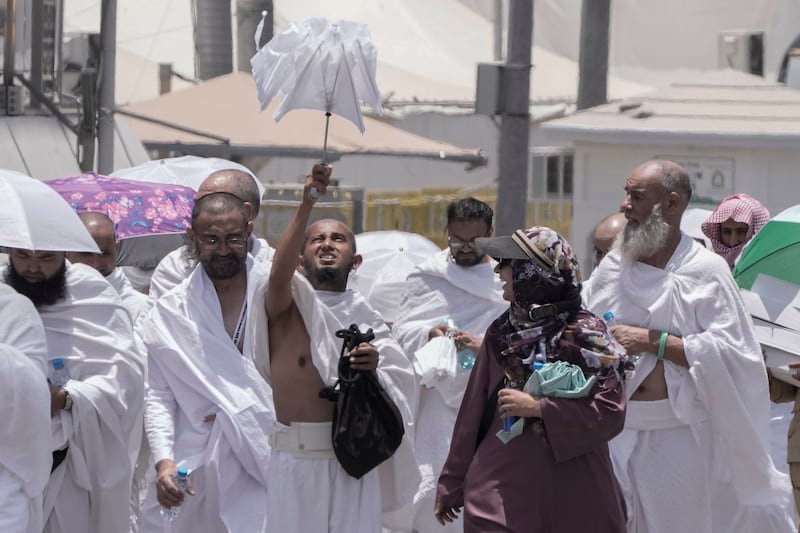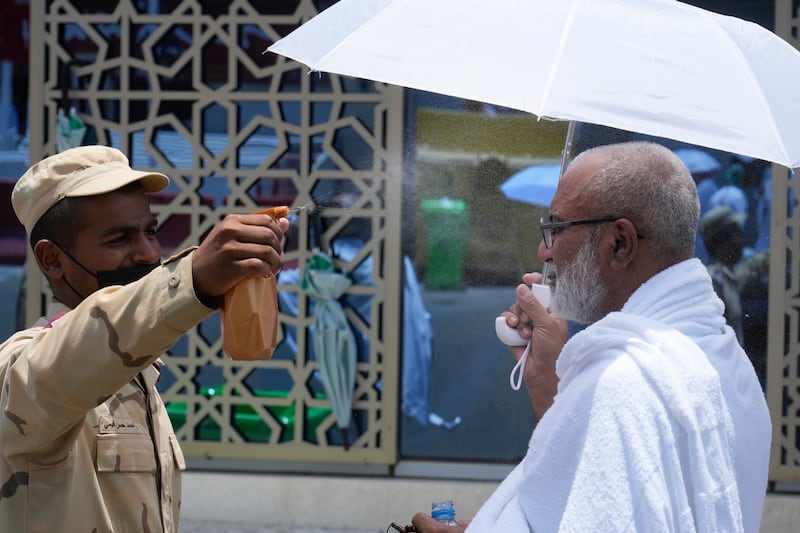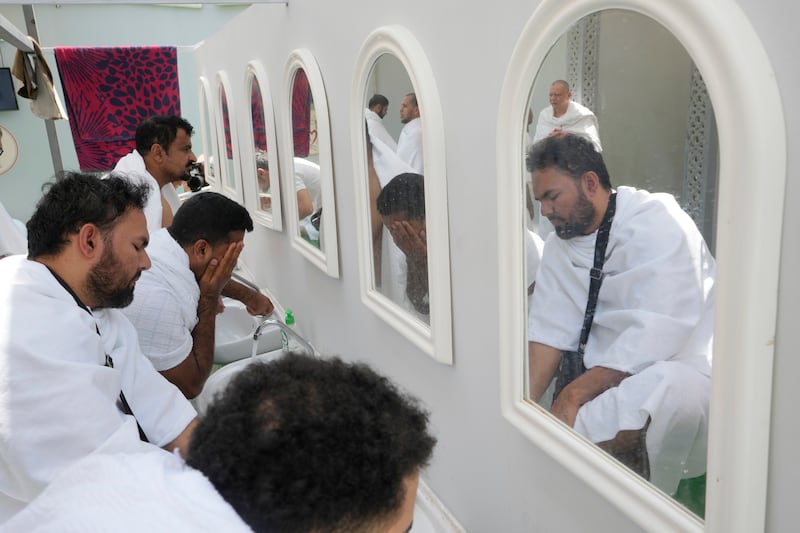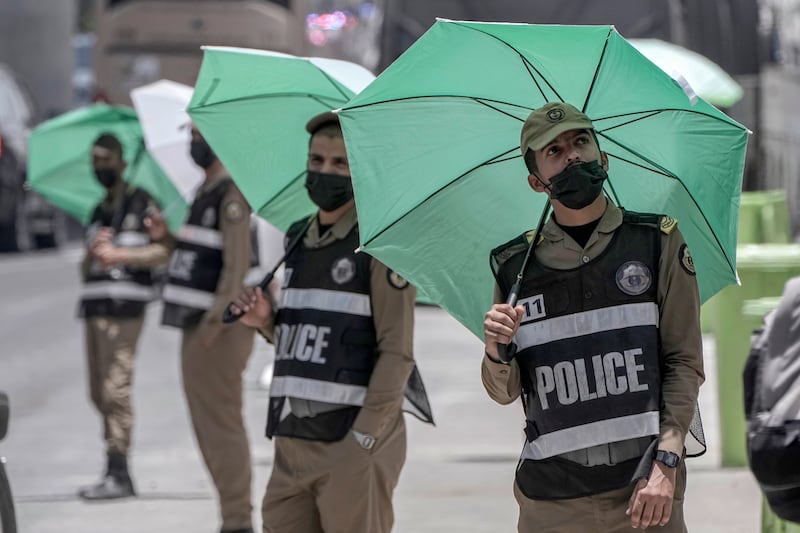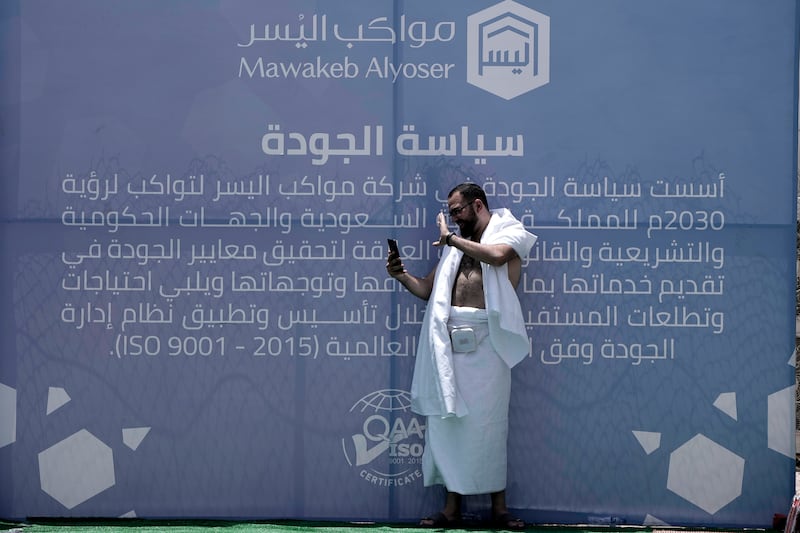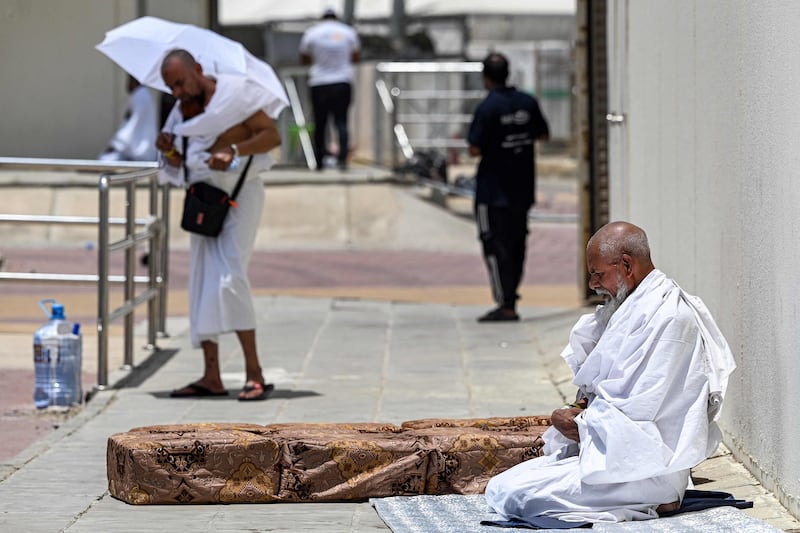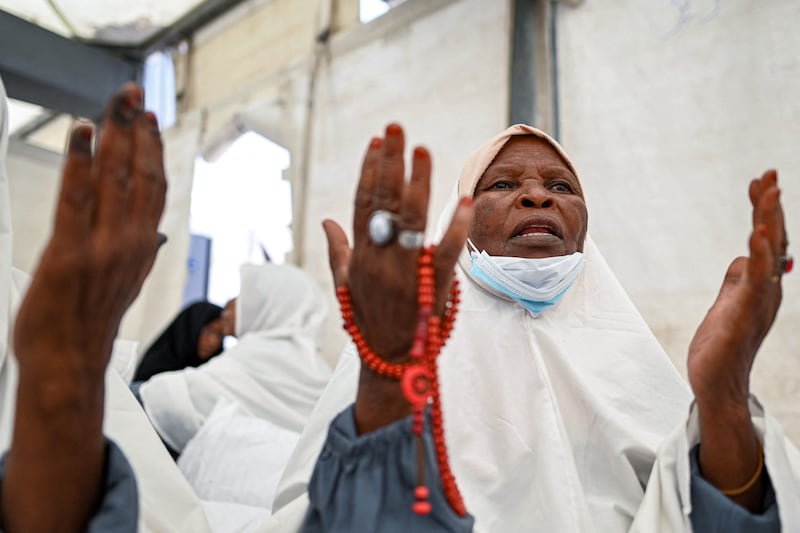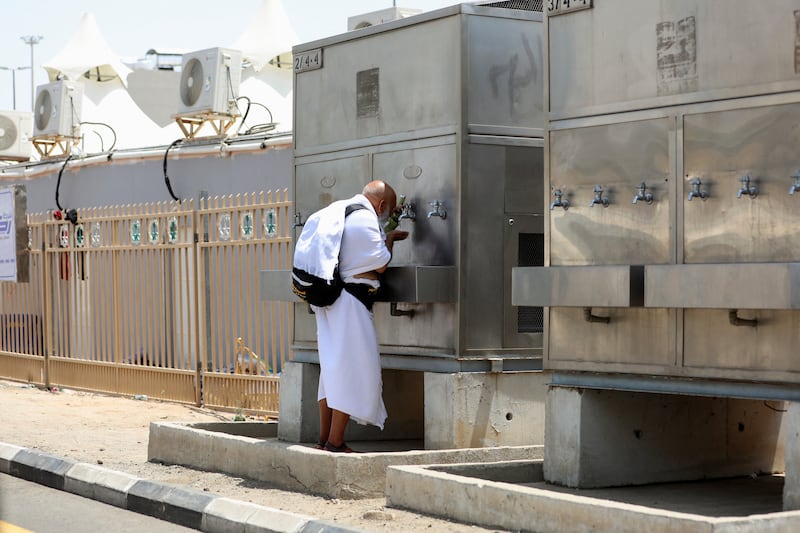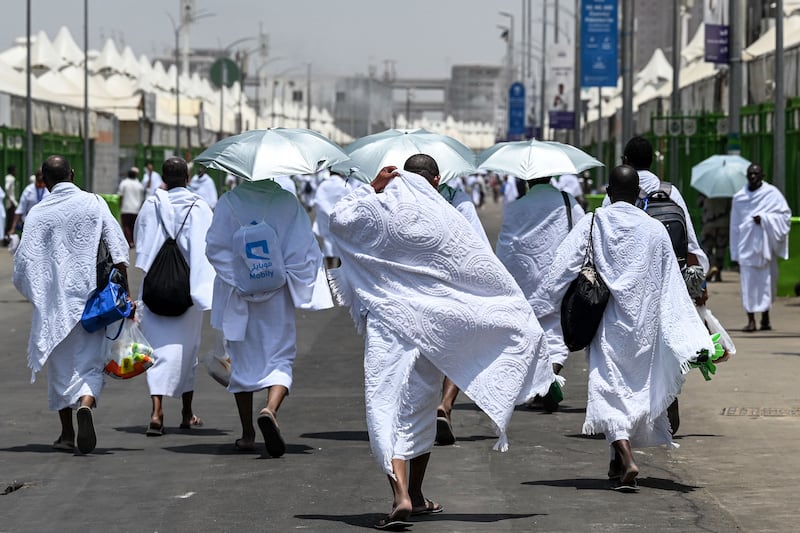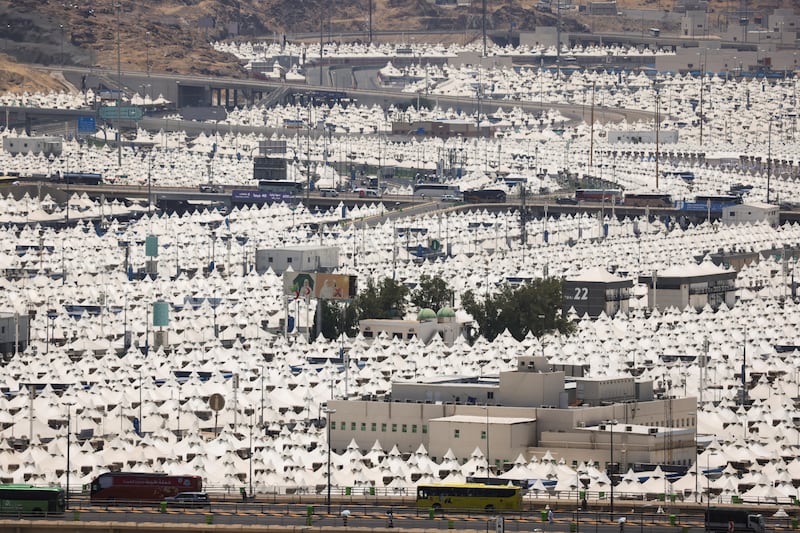Read the latest updates on the Hajj pilgrimage here
Pilgrims woke up early on Tuesday in the tented city of Mina to prepare for one of the most important rituals of Hajj.
They spent the previous night in the Mina valley, where more than 100,000 air-conditioned tents were set up across 2.5 million square metres to accommodate them. Around two million people from 160 countries are expected to make pilgrimage this year – the largest turnout since the Covid-19 pandemic.
Some had barely slept at all, staying up to read the Quran and offer prayers during Layali al Tashriq. Others anxiously anticipated the remainder of their pilgrimage, which is required of every able Muslim at least once in their lifetime.

It is the ninth day of Dhu Al Hijjah – the second day of Hajj – when millions of pilgrims will perform Fajr – or dawn prayers – in Mina, then make their way to Mount Arafat, about 21 kilometres away.
Historically, pilgrims would have made the journey on foot, but today buses shuttle thousands of people back and forth.
By the afternoon, thousands of men and women, many carrying umbrellas to protect themselves from the sun's rays amid temperatures of up to 44ºC, will be clambering up the mountain where Prophet Mohammed is said to have delivered his final sermon. The holy site is also said to be where Adam and Eve were reunited on Earth after falling from heaven.
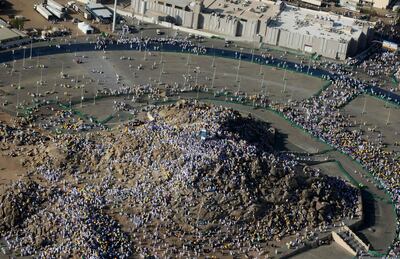
Dhuhr (past midday) and Asr (late afternoon) prayers are performed communally in the Arafat valley after the Hajj sermon is read. This year, the sermon will be delivered by Sheikh Yousef bin Mohammed, a member of the Council of Senior Scholars who has served as a preacher during Eid for almost 20 years. The sermon will be given in Nimrah mosque in located in Arafat. It is the place from where Prophet Muhammad delivered the last sermon.
Authorities have installed air conditioning and air purification systems that produce 100 per cent pure air, with air expelled mechanically, to maintain the level of oxygen and ensure a healthy environment for pilgrims inside the mosque.
Saudi officials have covered the inside of the mosque with luxurious carpets, spanning an area of more than 125,000 square meters.
The sermon will be translated into 20 languages and is expected to be heard by around 300 million listeners.
Pilgrims typically spend the full day at Mount Arafat, praying and supplicating to God.
Rituals end at sunset, when pilgrims make their way to Muzdalifah, south of Mina, for shortened Maghrib and Isha prayers. There, they must collect pebbles to perform the last steps of Hajj. Worshippers are recommended to collect 70 pebbles so they may participate in Jamarat – the stoning of the devil ceremony, when pilgrims cast stones at three pillars where the devil is said to have appeared to Prophet Ibrahim – after midnight.
Pilgrims who do not visit Mount Arafat on Tuesday will not have completed Hajj, and therefore their Hajj would be considered invalid.
On Monday, pilgrims said they were planning out their schedules for setting off to Mount Arafat the following day.
“We will leave for Mount Arafat tonight because of the rush tomorrow and hopefully reach there by 3am. They don’t let buses stop anywhere there because of the huge crowds so we will try to board around 11pm tonight,” said Mariam Khandwani, from Pakistan.
She works as a guide at her husband's travel company, helping female pilgrims perform Hajj.
"I am taking care of 55 women, helping to resolve any issues they face during the pilgrimage," she said.
Ms Khandwani is also overseeing her 10-year-old son's first Hajj. Dressed in ihram, Mohammed was also fitted with a wristband, lanyard and badge as part of a safety campaign by Saudi Arabia's Agency for Social and Voluntary Services to prevent children from getting lost.
"It's going to be hot but I'm ready for it," he said.
Becca Kafi, a 16-year-old Canadian pilgrim, is performing Hajj for the first time this year. She said she did not know what to expect at Arafat “except that it’s going to be hot!"
“It’s been very smooth so far,” she said of her experience.
Shams Siddiqui and his wife Samina Khan, from Sharjah, said they were looking forward to visiting Mount Arafat and completing Hajj this year. Ms Khan, an Indian pilgrim, told The National she was performing Hajj on behalf of her mother, who passed away a few years ago.
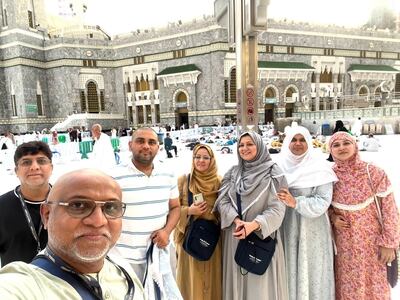
Though it is the first Hajj to be held without any Covid-19 restrictions since 2019, local authorities are distributing more than 100,000 masks every day to pilgrims so they may protect themselves in large crowds.
Saudi Arabia’s Ministry of Health said the 24/7 call centre 937 is dedicated to serving pilgrims by addressing any health inquiries, providing consultations and handling communications and complaints. The centre will also help locate missing people and provide free medical consultations.
Health officials in Mina have told The National there are six hospitals in Arafat with a capacity of more than 300 beds.
The kingdom provides free healthcare to pilgrims during Hajj. Authorities have prepared 172 hospitals and health centres at holy sites in Makkah and Madinah to serve pilgrims this year.
More than 49,000 pilgrims have received medical care services in seasonal health centres and facilities in Madinah since June 19, the first day of Dhu Al Hijjah.
